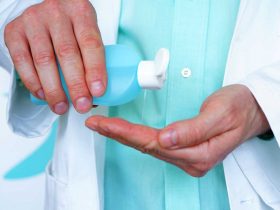By Nancy Collins, PhD, RDN, LD, NWCC, FAND
It is important to advocate for yourself. This means voicing your concerns and making sure you receive timely and professional care from your health care team. Don’t be afraid to speak freely and speak up if you feel something is wrong.
Some general guidelines on when to contact your doctor:
• The pressure injury or wound is becoming larger or deeper
• You notice increased wound drainage and/or it smells bad
• A new wound develops
• The wound is not showing signs of improvement within 2 to 4 weeks, such as:
- Becoming smaller in size
- Filling in from the wound base (the bottom of the wound)
- Having less necrotic or dead tissue. Eschar is a type of tissue that is dry, thick, and leathery and is usually tan, brown or black. Slough is another type of devitalized tissue that is yellow, tan, green or brown and is typically loose and stringy in appearance.
• You notice the following signs of wound infection:
- Thick yellow or green discharge
- Foul odor
- Redness or warmth around the wound
- Tenderness or pain in the surrounding wound area
- Swelling
Trust your instinct. If you feel you are not getting proper care, it is probably time to get a second opinion.















